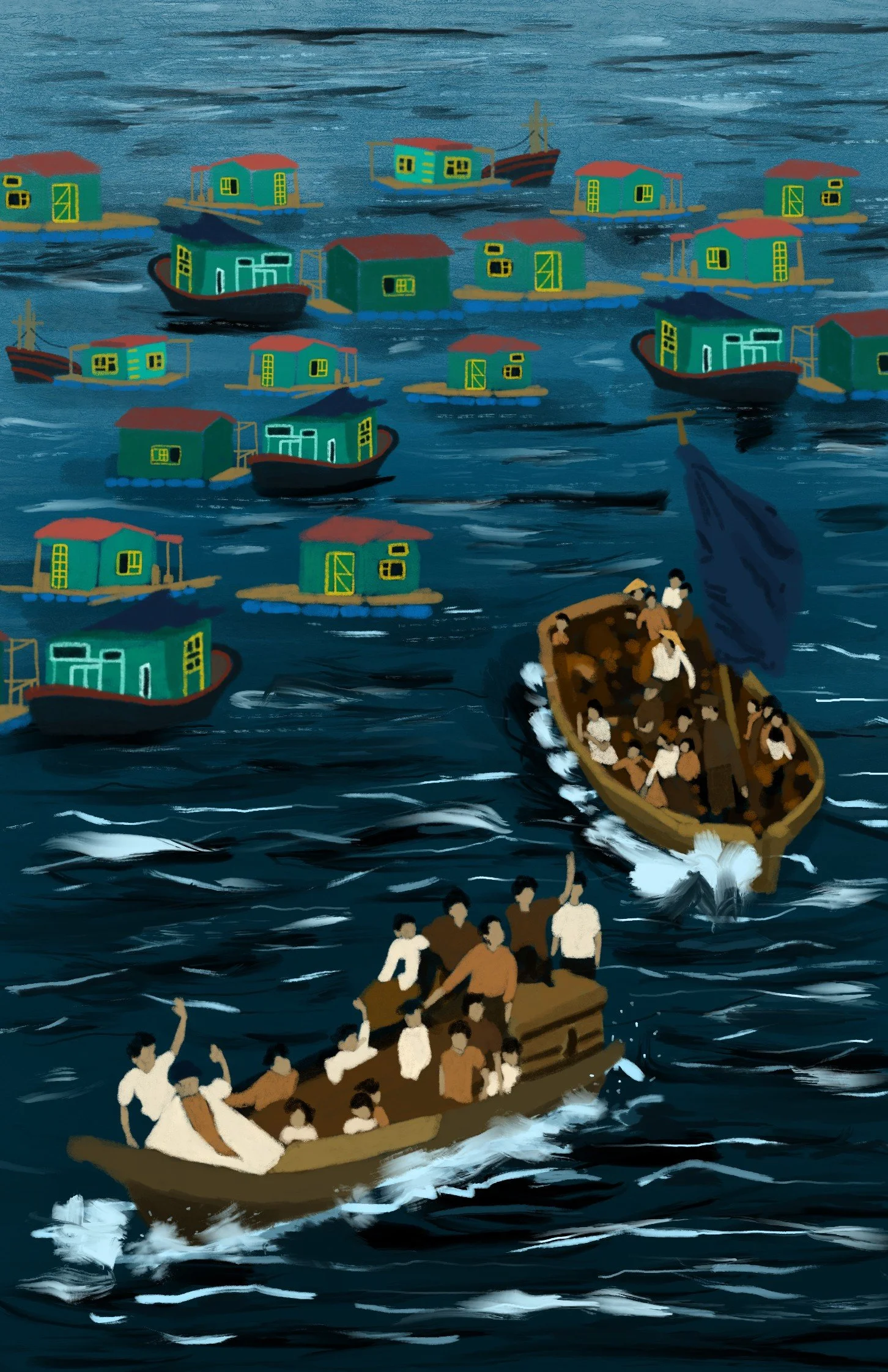Nước (2025)
Performances:
Premiere by the Illinois Philharmonic Orchestra, conducted by Stilian Kirov on May 17, 2025, at Trinity Christian College, Palos Heights, IL
San Antonio Philharmonic, conducted by Jeffrey Kahane, Scottish Rite Hall, San Antonio, TX, March 27-28, 2026 (2 performances)
Reviews:
commissioned by the Illinois Philharmonic Orchestra as the Winner of the 2022 IPO Classical Evolve Composer Competition
for symphony orchestra
2(II=pic).2.2.2.cbsn - 4.3.3.1 - timp.perc(3) - str
Duration: c. 10-11 minutes
“‘Nước’ is a powerful and haunting work, finely crafted with real individuality and skill, that packs a lot of incident into its 11-minute span.”
Art by ‘Apikale Fouch
2025 is the 50th anniversary of the end of the Vietnam War, or as the country this conflict was waged in calls it, the American War. Within the diasporas that have formed in those fifty years, water has emerged as a significant motif in the art and literature of Vietnamese creatives arounds the world. For the Vietnamese boat people who fled their country in search of a new home, water (the ocean) served as both an endless labyrinth and their temporary sanctuary. In Vietnamese, the word Nước translates to both “water” and “country,” and it is the relationship between those two meanings that is centered in this work. Nước navigates what I view as the contradiction of the Vietnamese diasporic experience while also imagining water as a form of country.
Nước derives its motivic material, harmony, and structure from the song “Biển Nhớ” (“the sea yearns” or “the sea remembers”) written by Vietnamese songwriter Trịnh Công Sơn and popularized by singer Khánh Ly. The two were close collaborators and were central musical figures during the war, particularly for Trịnh’s lyrics, which often explored themes of love, grief, and pacifism. Fragments of “Biển Nhớ” are used as the gestural and textural fabric of the work from which the song’s melody emerges as a cello solo accompanied by violent interruptions from the orchestra. Constantly moving between flowing, interweaving textures and wild bursts of sound, Nước illustrates the culture of mourning and the deep yearning of the Vietnamese diaspora.
Program Note:
